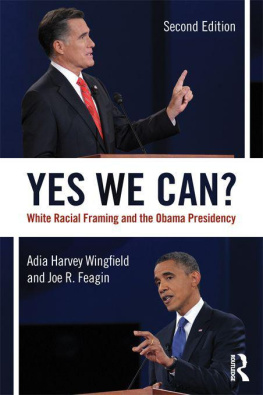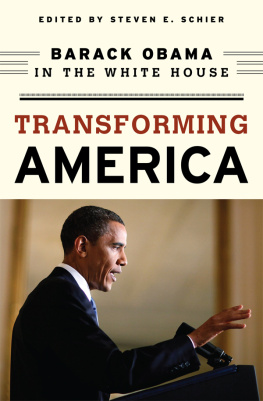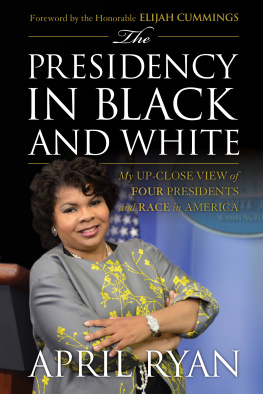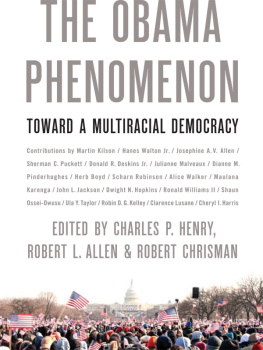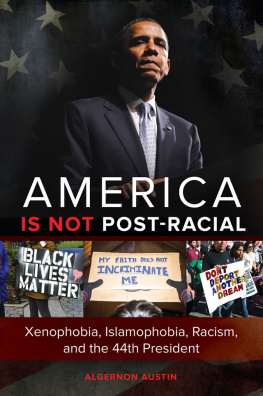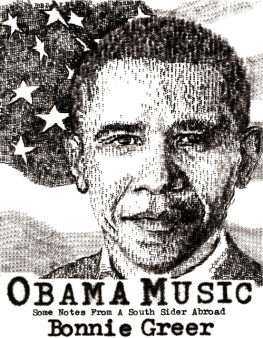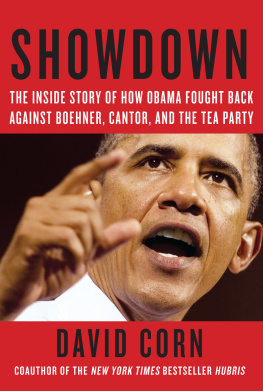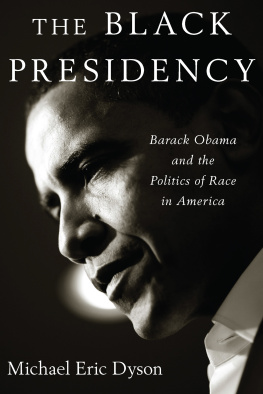Yes We Can?
The first edition of this book offered one of the first social science analyses of Barack Obamas historic electoral campaigns and early presidency and earned wide use in undergraduate race and ethnicity courses throughout the United States. In this second edition the authors extend that analysis to Obamas service in the presidency and to his second campaign to hold that presidency. Elaborating on the concept of the white racial frame, Harvey Wingfield and Feagin assess in detail the ways white racial framing was deployed by the principal characters in the electoral campaigns and during Obamas presidency. With much relevant data, this book counters many common-sense assumptions about U.S. racial matters, politics, and institutions, particularly the notion that Obamas presidency ushered in a major post-racial era. Readers will find this fully revised and updated book distinctively valuable because it relies on sound social science analysis to assess numerous events and aspects of the historic 2012 presidency campaign.
Adia Harvey Wingfield is an associate professor of sociology at Georgia State University. Her research focuses on the ways intersections of race and gender shape various groups experiences in different occupations. Her recent work addresses the experiences of black male nurses, minority faculty at independent schools, and black female entrepreneurs.
Joe R. Feagin is Ella C. McFadden Professor at Texas A&M University. Feagin has done research on racism and sexism issues for 48 years and has served as the Scholar-in-Residence at the U.S. Commission on Civil Rights. He has written many scholarly books and articles in his major research areas, and one book (Ghetto Revolts) has been nominated for a Pulitzer Prize. He was the 19992000 president of the American Sociological Association.
Yes We Can?
White Racial Framing and the Obama Presidency
Second Edition
Adia Harvey Wingfield
and Joe R. Feagin

Second edition published 2013
by Routledge
711 Third Avenue, New York, NY 10017
Simultaneously published in the UK
by Routledge
2 Park Square, Milton Park, Abingdon, Oxon OX14 4RN
Routledge is an imprint of the Taylor & Francis Group, an informa business
2013 Taylor & Francis
The right of Adia Harvey Wingfield and Joe R. Feagin to be identified as authors of this work has been asserted by them in accordance with sections 77 and 78 of the Copyright, Designs and Patents Act 1988.
All rights reserved. No part of this book may be reprinted or reproduced or utilised in any form or by any electronic, mechanical, or other means, now known or hereafter invented, including photocopying and recording, or in any information storage or retrieval system, without permission in writing from the publishers.
Trademark notice: Product or corporate names may be trademarks or registered trademarks, and are used only for identification and explanation without intent to infringe.
First edition published by Routledge 2010
Library of Congress Cataloging in Publication Data
Wingfield, Adia Harvey, 1977
Yes we can?: white racial framing and the Obama presidency/Adia Harvey Wingfield and Joe R. Feagin.2nd ed.
p. cm.
Includes bibliographical references and index.
1. PresidentsUnited StatesElection2008. 2. PresidentsUnited StatesElection2012. 3. United StatesPolitics and government2009. 4. Political campaignsUnited StatesSociological aspects. 5. ElectionsUnited StatesSociological aspects. 6. Obama, Barack. 7. Obama, BarackPublic opinion. 8. United StatesRace relationsPolitical aspects. 9. Race discriminationPolitical aspectsUnited States. 10. Post-racialismUnited States. 11. WhitesUnited StatesAttitudes. 12. Public opinionUnited States. I. Feagin, Joe R. II. Title.
E906.W56 2012
324.973dc23
2012022065
ISBN: 978-0-415-64536-2 (hbk)
ISBN: 978-0-415-64538-6 (pbk)
ISBN: 978-0-203-07873-0 (ebk)
Typeset in Adobe Caslon and Copperplate Gothic by Florence Production, Stoodleigh, Devon, UK
CONTENTS
PREFACE
On a cold January inauguration day in 2009, history was made and witnessed by millions of television viewers across the globe. In Washington, D.C., a record-breaking crowd of over one million people of all ages, racial groups, and nationalities personally gathered on the national mall to be present for the inauguration of President Barack Obama. This dramatic scene was unlike any other in this countrys history, in large part because it marked the onset of a presidential administration led by the first African American president. Indeed, many in the audience were driven by the desire to be a part of this unique moment, and braved cold temperatures, large crowds, and long waiting periods in order to say that they were there.
In the wake of Obamas dramatic 2008 election, many have argued that his presidency marks the end of the tumultuous racial history of the United States, and indicates that white racism has now been defeated and rendered inconsequential. Ironically, however, this argument seems to conveniently forget all of the ways in which both the 2008 and the 2012 election cycles were more overtly racialized than any presidential elections in more than a century. How do we reconcile the image of a post-racial America with the recent spectacle of whites who have depicted candidate and President Obama through crass racist imagery that evokes historical representations of blacks subhuman characteristics and have even likened him to a monkey? Or with white Americans who, after the 2008 election, committed numerous hate crimes against Americans of color across the country? Major issues such as these warrant a much more in-depth analysis of the ways in which racial issues have been part and parcel of the successful 2008 presidential campaign and his presidency.
In this book, we attempt to address these racial questions in detail. As social scientists who study racial discrimination and inequality, we see a unique opportunity here to expound and develop further existing conceptual frameworks so that they speak more clearly to the still-difficult reality of racial relations in a country where racial stratification and discrimination remain severe and pervasive. Yet, at the same time, this is a country that has managed to achieve a major political milestone in electing a black man as president who, had he been born a generation or two earlier, would likely have faced the threat of injury or death simply for attempting to register to vote in southern or border states. We also see the chance here to offer a sound social science analysis of the white racial framing that was used extensively throughout the 2008 and 2012 primaries and general electionsand that has been routinely used since the election. Having witnessed media analysts, pundits, politicians, scholars, and everyday citizens offer their interpretations of these distinctive and unprecedented political events, we feel that it is very important, timely, and necessary to continue to provide an assessment grounded in social science thinking and analysis with a critical bent. Thus, in this book we attempt to use relevant social science theory and data about racial matters to examine closely and systematically the critical social issues of this historic presidential campaign.
In the white racial frame does not show its blatant racism in public but prefers to accent a color-blind imagery and a set of emotion-laden assertions playing down the reality of racism. We suggest here that both these versions of the white racial frame were used repeatedly over the course of both the 2008 and the 2012 primary seasons and the following presidential elections, as well as during the years Obama has made his many decisions as president.
Next page
